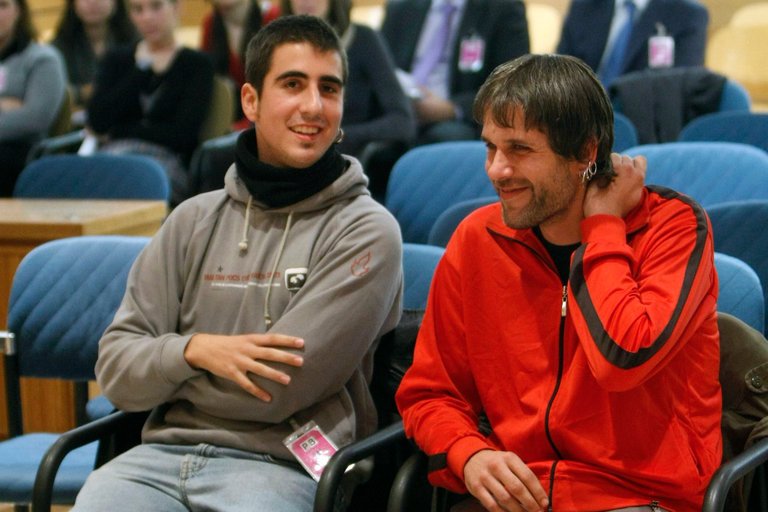13.03.2018 - 21:19
The European Court of Human Rights said on Tuesday that Spain had wrongfully condemned two Catalans for publicly burning a photograph of the king and queen, saying that the act was justifiable political criticism.
In their unanimous ruling, the judges said they were “not convinced” that the burning “could reasonably be construed as incitement to hatred or violence.”
The decision from the European court, which is based in Strasbourg, France, comes as Spain has mounted a series of challenges to freedom of expression by social media users as well as rappers and other artists. Many of them have been prosecuted on charges of violating antiterrorism laws introduced in 2015 by the conservative government of Prime Minister Mariano Rajoy.
The protest case, however, dates from 2007, when Catalan secessionism was still a fringe political movement. More recently, the northeastern region of Catalonia has become the epicenter of a territorial and constitutional crisis that culminated in a botched declaration of independence last October.
In September 2007, Enric Stern and Jaume Roura set fire to a life-size, upside-down photograph of the royal couple during a visit by King Juan Carlos I to the northeastern city of Girona.
The two men were initially sentenced to 15 months in prison for insulting the monarchy — a felony in Spain. The sentence was later reduced to a fine of 2,700 euros, or about $3,300, each. The defendants took their case to the European court after Spain’s Constitutional Court refused to hear their appeal. The European court ordered Spain to reimburse the fines imposed and pay for legal costs.
In its ruling, the court said that the photo burning “had not been a personal attack on the king of Spain geared to insulting and vilifying his person, but a denunciation of what the king represented as the head and the symbol of the state apparatus and the forces which, according to the applicants, had occupied Catalonia.”
The Spanish government did not have any immediate reaction to the ruling.
Picture-burning protests have become more common as the drive toward the creation of an independent Catalan republic has gathered steam. In late 2016, politicians from the Popular Unity Candidacy, a far-left Catalan party, ripped photographs of the current monarch, King Felipe VI, during a news conference that was held to protest prosecutions of demonstrators who burned royal photographs.
This week, an Amnesty International report, headlined “Tweet if you dare,” condemned Spain’s use of counterterrorism legislation to prosecute people who posted social media messages judged to “glorify terrorism.” The report concluded that the toughening of the law in 2015 had led to “increasing self-censorship and a broader chilling effect on freedom of expression in Spain.”
By Raphael Minder 13 March 2018

